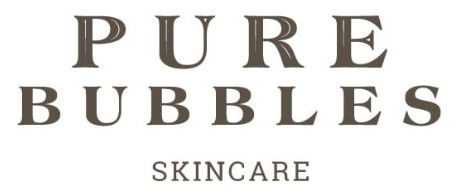Acne is one of the most common skin concerns in India—affecting teenagers, young adults, and even people in their 30s and 40s.
With so many treatment options available, it’s natural to wonder: Is retinol good for acne? The short answer is yes—when used correctly, retinol for acne can be a game-changer.
In this complete guide, we’ll break down how retinol works, who should use it, what to expect, and how to safely incorporate it into your skincare routine for clearer, smoother skin.
What is Retinol, and How Does It Work on Acne?
Retinol is a derivative of Vitamin A and one of the most researched ingredients in dermatology. It works by increasing skin cell turnover, unclogging pores, reducing inflammation, and regulating oil production—all of which make it incredibly effective for treating and preventing acne.
In fact, retinol cream for acne doesn’t just target pimples—it also helps fade the post-acne marks and improves overall skin texture.
Top Benefits of Retinol for Acne-Prone Skin
-
Unclogs Pores: Retinol penetrates deep into the skin to clear out congestion and reduce blackheads and whiteheads.
-
Reduces Breakouts: By regulating sebum production and keeping pores clear, retinol lowers the chance of new breakouts.
-
Fades Acne Marks: Retinol stimulates collagen production and exfoliates pigmented skin cells, helping to fade dark spots left behind by acne.
-
Improves Skin Texture: It smoothens rough skin and evens out tone, leaving your face looking clearer and more refined.
-
Prevents Future Acne: Over time, retinol builds up the skin’s resilience and helps prevent recurring acne.
How to Use Retinol for Acne Safely
-
Start with a Low Concentration: Beginners should choose a mild formula—like the Pure Bubbles 0.3% Retinol Night Cream. It’s effective yet gentle for Indian skin.
-
Apply at Night: Retinol is sensitive to sunlight. Use it only at night after cleansing your face.
-
Use a Pea-Sized Amount: Too much can irritate the skin. A small amount is enough for the entire face.
-
Follow with Moisturizer: Always lock in hydration. Pair it with Clarity Lotion (for oily/acne-prone skin) or Propolis Cream (for dry/sensitive skin).
-
Avoid Mixing With Harsh Actives: Don’t use retinol with AHAs, BHAs, or Vitamin C in the same routine unless directed by a dermatologist.
When Will You See Results?
Most people begin to notice visible improvements in 4–6 weeks. You may experience some dryness or purging in the first two weeks—this is normal. Consistency and patience are key. Stick to 2–3 nights a week at first, then gradually increase if your skin tolerates it well.
Who Should Avoid Retinol?
-
Pregnant or Breastfeeding Women: Retinol is not recommended during this period.
-
People with Extremely Sensitive Skin or Eczema: It may cause irritation without professional guidance.
- Those Using Strong Prescription Acne Medication: Consult a dermatologist before combining treatments.
Final Thoughts: Is Retinol Cream Good for Acne?
Absolutely. When used correctly, retinol for acne is one of the most effective, research-backed treatments for breakouts, scars, and textured skin.
And with new-age Indian skincare brands like Pure Bubbles offering beginner-safe retinol creams, it's easier than ever to start your journey toward clearer, healthier skin.
FAQs
1. Should people with acne use retinol?
Yes, people with acne can benefit greatly from using retinol. It helps unclog pores, reduce inflammation, and speed up cell turnover, which prevents new breakouts. Start with a low concentration and use it a few nights a week to allow your skin to adjust.
2. Is retinol good for acne marks?
Absolutely. Retinol is excellent for fading acne marks and hyperpigmentation. It promotes collagen production and renews the skin’s surface, gradually reducing the appearance of dark spots and uneven texture.
3. How long until retinol clears acne?
Results vary, but most people notice improvements in acne within 8–12 weeks of consistent use. Patience is key, as retinol works by changing how your skin regenerates over time.
4. Can retinol make acne worse at first?
Yes, that can happen. Some users experience an initial “purge” phase during the first few weeks, where breakouts may temporarily worsen. This is normal and usually subsides once your skin adjusts to the retinol.
5. Is retinol bad for skin?
No, retinol isn’t bad for your skin when used correctly. However, overuse or using a formula that’s too strong can cause irritation, redness, or dryness. Always follow with a moisturizer and sunscreen during the day.
6. Can vitamin C cause acne?
Vitamin C doesn’t typically cause acne, but some formulations may clog pores or irritate sensitive skin. If you notice breakouts, try switching to a lighter, non-comedogenic vitamin C serum.
7. How long do retinol uglies last?
“Retinol uglies” (dryness, peeling, or mild irritation) usually last 2–6 weeks as your skin adapts. Use gentle cleansers, hydrating moisturizers, and reduce retinol frequency during this adjustment period.
8. Can azelaic acid cause acne?
Azelaic acid rarely causes acne. In fact, it’s often prescribed for acne-prone and rosacea-prone skin because it reduces inflammation and bacteria. Mild purging can occur but typically clears quickly.
9. Why does my skin look worse after using retinol before?
That’s likely the retinol purge or temporary irritation. As dead skin cells shed and clogged pores clear, your skin might look worse before it improves. Consistent use and gentle skincare will help it settle.
10. Can retinol cause itching?
Yes, mild itching or dryness can occur, especially when starting retinol. It’s usually a sign of skin adjustment. To minimize this, apply moisturizer before or after retinol and avoid using it on damp skin.

